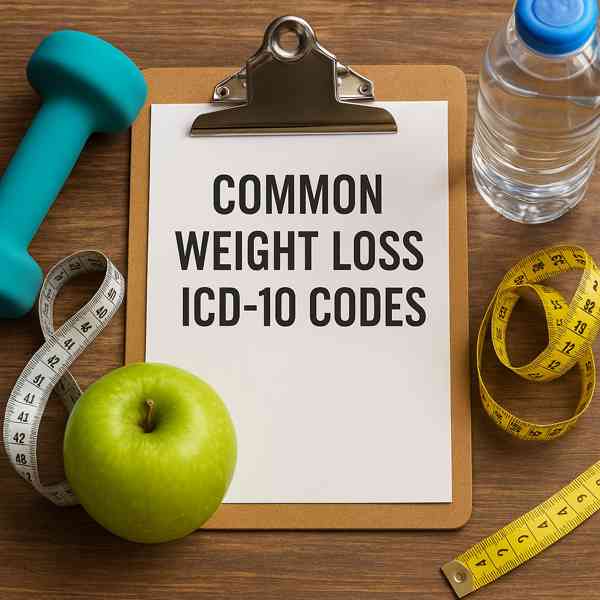Accurate ICD-10 Coding for Weight Loss
Accurate ICD-10 Coding for Weight Loss
Blog Article

In the world of healthcare, accurate coding is essential — especially when it comes to documenting weight loss.
In this article, we’ll break down what ICD-10 codes are used for weight loss, how to apply them, and what you should know for accurate recordkeeping.
Understanding ICD-10 for Weight Loss
ICD-10 stands for the International Classification of Diseases, 10th Revision.
Each diagnosis is assigned a unique code, which is used for:
- Submitting claims to health providers
- Tracking public health trends
- Communicating diagnoses between professionals
Which ICD-10 Codes Apply to Weight Loss?
Weight loss can be intentional or unintentional — and each situation has a specific ICD-10 code.
Key codes include:
- Used when weight loss is unexplained or unintentional
This code applies when a patient loses a significant amount of weight without trying, often due to illness.
- Used when weight loss is guided by professional support
Often applied in cases involving nutritional intervention or guidance.
- Indicates poor nutrition or unhealthy patterns impacting weight
- E66.9 – Obesity, Unspecified
- Applied in extreme undernutrition cases, often linked with weight loss
When to Use R63.4 for Weight Loss
Use R63.4 when:
- The patient reports significant, unintentional weight loss
- Weight loss is a primary symptom in evaluation
- Used as part of diagnostic workup
Important Notes for Coding Accuracy
To avoid claim denials or coding errors:
- This determines whether R63.4 is appropriate
- Document related symptoms or conditions
- Support your claim with a full picture
- Be sure they make sense in context
Coding for Counseling and Support Services
If you’re coding for a structured weight loss program or health coaching, consider using these weight gain icd-10 Z-codes:
- For nutrition-based support
- Z76.89 – Person Encountering Health Services for Other Reasons
- Z13.21 – Encounter for Nutritional Screening
These codes can support insurance claims for wellness, prevention, and obesity treatment plans.
Ensure Documentation is Clear and Compliant
Whether you’re coding for unintentional weight loss or part of a managed care plan, accuracy matters.
To summarize:
- Most common diagnosis for unknown causes
- Great for structured programs
- E-codes = Nutritional or medical malnutrition
Always consult coding guidelines and payer policies when applying ICD-10 codes. Report this page